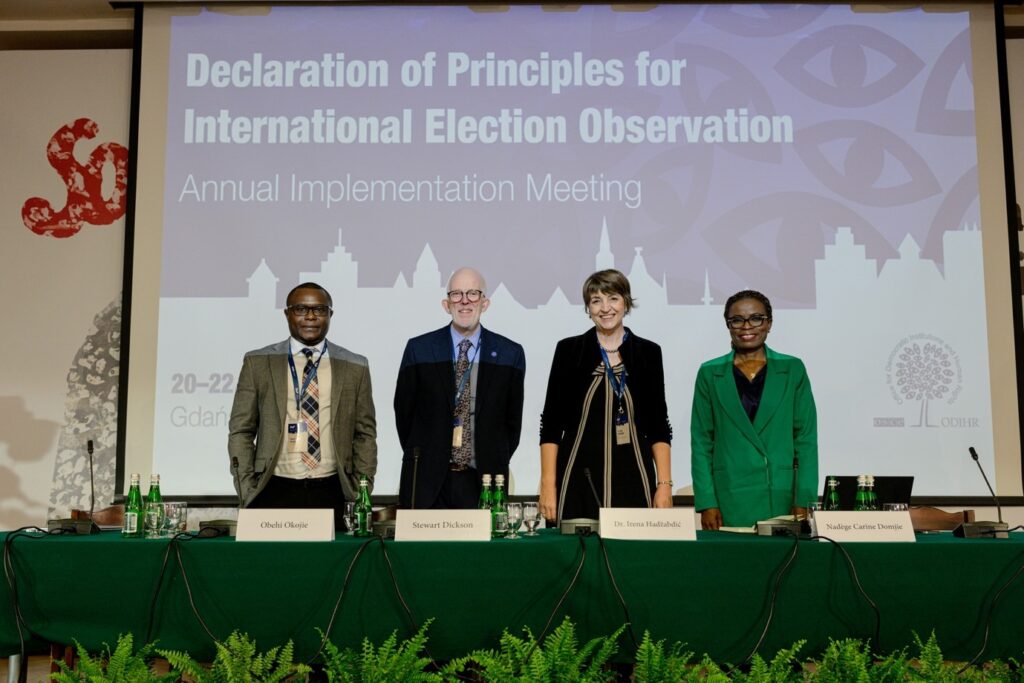DOP 2024
Day 1 Highlights: A historic figure in a historic venue for democracy

20 November 2024
Former Polish President and Nobel Peace Prize winner Lech Wałęnsa opened the annual implementation meeting of the Declaration of Principles (DoP) on International Election Observation with an impassioned keynote address from the very same hall in which he led the Solidarity movement that helped bring democracy to Poland.
In his speech he talked about he challenges to democracy posed by populism and the cautioned that the work that he started more than 30 years ago is still only half complete.
The conference was also opened by the Vice Mayor of Gdansk, Piotr Borawaski, and the Meaghan Fitzgerald, Head of the Elections Department of the OSCE Office for Democratic Institutions and Human Rights (ODIHR), host of this year’s DoP meeting.
Session 1: EMBs and Global Democracy Crises: Observing New Challenges and Electoral Management Body Responses

The first session kicked off with a lively panel discussion focused on the new challenges election management bodies (EMBs) are facing while fulfilling their mandates. It focused among others on areas such as cybersecurity, combating disinformation and misinformation, and political pressure streaming from political polarization, as well as the rise of hate speech.
Panellists, both practitioners from EMBs and international observers, discussed the various challenges EMBs experience in different contexts, including erosion of public trust and holding elections in emergency situations. The panellists agreed that over last 25 years there has been significant improvement in transparency and professionalism in the work of EMBs. Nevertheless, this comes with a huge expansion in their responsibilities and tasks, which often include dealing with ICT, campaign finance, media and social media, voter and candidate registration as well as election dispute resolution.
The growth of these issues exposes the EMBs and their capacities to deal with both new and recurring challenges. Some practical innovations adopted by EMBs include: continuous education and self-assessment; the creation of dedicated offices to deal with specific technical issues; continued collaboration with stakeholders; voter education as an important step to promote understanding on what role EMBs play; mechanisms for building trust; support for IC critical; support for citizen observer network is crucial;
The key take-aways from the session are that the EMBs worldwide face enormous and diverse challenges as they are given new tasks in addition to their traditional roles. The contextual, political and environment factors need to be taken into account to appreciate the full scope of their work.
